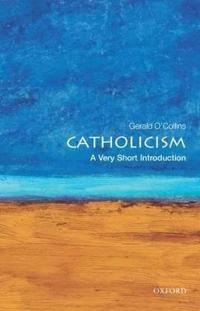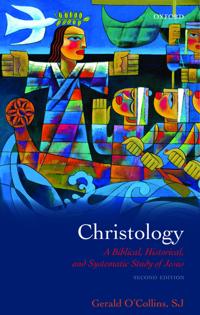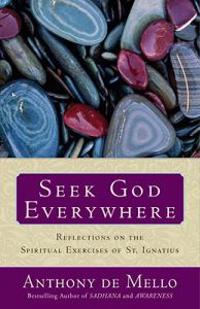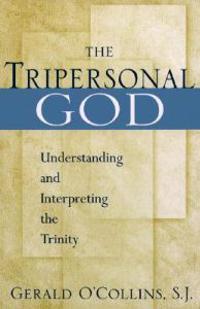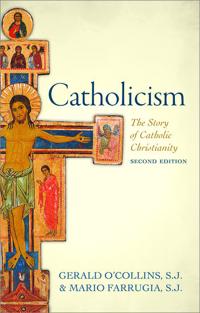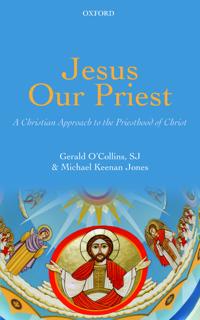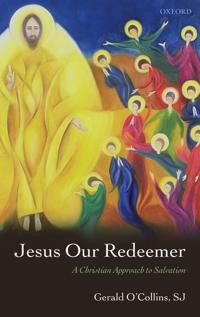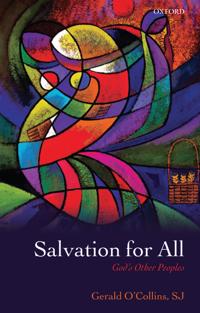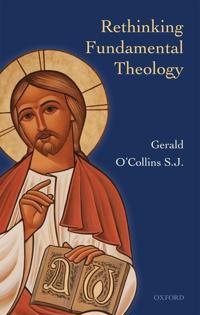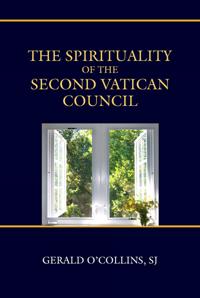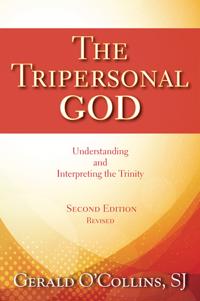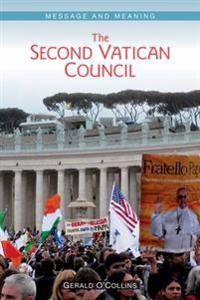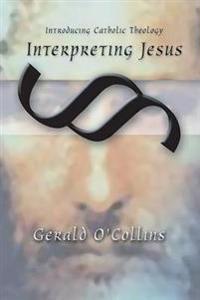Catholicism (Häftad)
avGerald O'Collins
ISBN: 9780199545919 - UTGIVEN: 200811Despite a long history of external threats and internal strife, the Roman Catholic Church and the broader reality of Catholicism remain a vast and valuable presence into the third millennium of world history. What are the origins of the Catholic Church? How has Catholicism changed and adapted to su[...]
Christology (Häftad)
avS.J.Gerald O'Collins
ISBN: 9780199557875 - UTGIVEN: 200907In this fully revised and updated second edition of his accessible account of systematic Christology, Gerald O'Collins continues to challenge the contemporary publishing trend for sensationalist books on Jesus that are supported neither by the New Testament witness nor by mainline Christian beliefs.[...]
Seek God Everywhere: Reflections on the Spiritual Exercises of St. Ignatius (Häftad)
avAnthony de Mello, Gerald O'Collins, , ,
ISBN: 9780385531764 - UTGIVEN: 201002Catholicism (Pocket)
avGerald O'Collins, Mario Farrugia, Gerald O'Collins
ISBN: 9780198728184 - UTGIVEN: 2015-02The bestselling Catholicism has now been revised and updated for an eagerly-anticipated second edition. This lucid and accessible account explains how Roman Catholicism and its beliefs and practices came to be what they are. Renowned scholars Gerald O'Collins and Mario Farrugia move through history [...]
Jesus Our Priest (Pocket)
avGerald O'Collins, Michael Keenan Jones, Gerald O'Collins
ISBN: 9780199645978 - UTGIVEN: 2012-03In recent years many books have been published in the area of Christology (who is Jesus in himself?) and soteriology (what did he do as Saviour?). A number of notable, ecumenical documents on Christian ministry have also appeared. But in all this literature there is surprisingly little reflection on[...]
Jesus Our Redeemer (Häftad)
avS. J. Gerald O'Collins
ISBN: 9780199203130 - UTGIVEN: 2007-01Jesus Our Redeemer examines what it means when Christians call Jesus their 'Redeemer' or 'Saviour'. It tackles such questions as: How can redemptive events in the past (Christ's life, death, and resurrection) bring about saving effects in the present? Why do human beings need redemption, both ind[...]
Salvation for All (Häftad)
avGerald O'Collins
ISBN: 9780199238897 - UTGIVEN: 2008-03This book examines in depth and at length what the Old Testament and the New Testament hold about the salvation of God's 'other peoples'. The Bible repeatedly witnesses to the universal scope of the divine love for all human beings and the chances of salvation that are available to them. Since the I[...]
Jesus Our Priest (Inbunden)
avS.J.Gerald O'Collins, Michael Keenan Jones
ISBN: 9780199576456 - UTGIVEN: 2010-03In recent years many books have been published in the area of Christology (who is Jesus in himself?) and soteriology (what did he do as Saviour?). A number of notable, ecumenical documents on Christian ministry have also appeared. But in all this literature there is surprisingly little reflection on[...]
Rethinking Fundamental Theology (Inbunden)
avGerald O'Collins
ISBN: 9780199605569 - UTGIVEN: 2011-07This book identifies the distinguishing features of fundamental theology, as distinct from philosophical theology, natural theology, apologetics, and other similar disciplines. Addressing the potential for confusion about basic Christian claims and beliefs, Gerald O'Collins sets out to relaunch fund[...]
Rethinking Fundamental Theology (Häftad)
avGerald O'Collins
ISBN: 9780199673988 - UTGIVEN: 2013-05This book identifies the distinguishing features of fundamental theology, as distinct from philosophical theology, natural theology, apologetics, and other similar disciplines. Addressing the potential for confusion about basic Christian claims and beliefs, Gerald O'Collins sets out to relaunch fund[...]
The Spirituality of the Second Vatican Council (Pocket)
avGerald O'Collins
ISBN: 9780809148707 - UTGIVEN: 2014-05This book presents the rich spirituality that Vatican II offers to all the faithful, a spirituality that has been widely neglected. Debates over the Council's theological and pastoral teaching continue to distract attention from the Council's central message about the universal call to holiness. Suc[...]
The Tripersonal God (Pocket)
avGerald O'Collins
ISBN: 9780809148769 - UTGIVEN: 2014-04Now in a revised edition, this book examines the Old Testament roots of trinitarian thought, the historical developments that gave rise to the doctrine of the trinity and contemporary thinking about trinitarian issues.[...]
Second Vatican Council (Häftad)
avGerald O'Collins
ISBN: 9780814683118 - UTGIVEN: 2015-01Convened by Pope John XXIII, the Second Vatican Council (1962-65) profoundly changed the self-image and life of the Catholic Church. But understanding, interpreting, and implementing Vatican II still remain a task far from completed. Pope Francis has given fresh impetus toward practicing the Council[...]
Tripersonal God (Pocket)
avGerald O'Collins
ISBN: 9780826476883 - UTGIVEN: 2004-11In The Tripersonal God, Gerald O'Collins examines the roots and development of Trinitarian belief, drawing on three areas for reflection: Testimony to the tripersonal God in the scriptures - both the Old Testament background and the teachings of Paul and the gospel writers The development of Trini[...]

